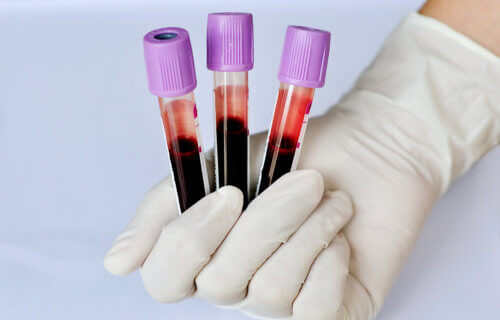SINGAPORE — Restoring protein balance in the blood may be key to developing an effective treatment for lupus. The incurable autoimmune disease reportedly affects about 100 in every 100,000 people worldwide, and disproportionally affects women between 15 and 45 years-old and Asians.
Lupus causes the body’s immune system to attack itself, which can inflame several vital organs like the kidneys, brain, heart, and lungs. The aggressive nature of the disease is what makes it life-threatening for many who have it, especially since current treatments don’t help that much.
“We are excited about the possibility of a new treatment option for lupus as 30 to 60 percent of patients do not respond to conventional medications despite aggressive regimens. In the past 65 years, only three drugs for lupus have been approved by the United States Food and Drug Administration but these drugs have modest efficacy. There is therefore a real and urgent need for better therapies, particularly for the more severe spectrum of lupus that we see in Asia,” says senior author Andrea Low, the Head and Senior Consultant in the Department of Rheumatology & Immunology at Singapore General Hospital (SGH), in a media release.
One protein could hold the key to a cure
To reach their findings, Low and her team studied CXCL5, a protein that helps to regulate the immune system through neutrophils, which are a type of white blood cell. They revealed that lupus patients had considerably lower levels of the protein in their blood compared to healthy people, thus suggesting that it may have a connection to the disease.
They also discovered that mice with severe lupus injected weekly with CXCL5 displayed restored protein balance. Moreover, their survival outcomes increased from 25 percent to over 75 percent after 10 weeks. Not only did the injections reduce mortality risk, but they didn’t cause any adverse side-effects, study authors report.
“Our study has shown CXCL5 to be safe. There was no liver or kidney toxicity or cancer inducing effects. Major components of the immune system were also not compromised,” reports principal investigator Dr Fan Xiubo, Senior Research Fellow, Department of Clinical Translational Research, SGH.
The entire team is hopeful that they can continue to build on their research to better the lives of patient’s suffering from this debilitating disease.
“To be in the forefront of medicine means we have to constantly further our understanding of diseases and offer patients better treatment options through rigorous scientific research. I’m heartened that the team has shed new light on lupus and the possibility of a more efficacious therapy for patients some years down the road,” says Professor Fong Kok Yong, Deputy Group CEO (Medical and Clinical Services), SingHealth, and Senior Consultant, Department Rheumatology & Immunology, SGH
The findings are published in the journal Arthritis & Rheumatology.

